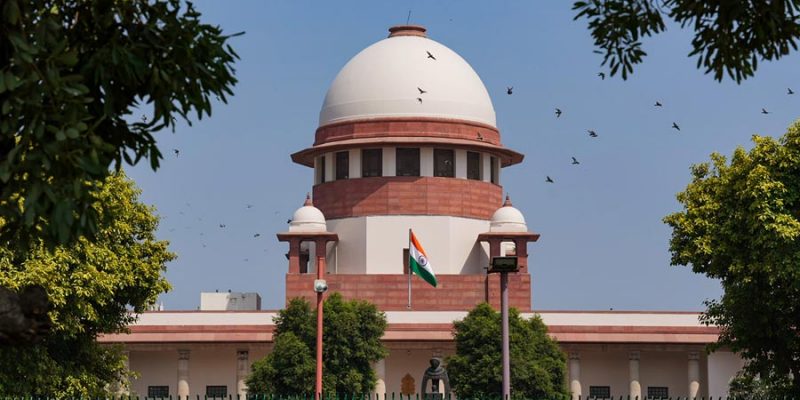The Illogic and Inanity of the Religious Right in India

I wrote a short critical article a few weeks ago on the ideas of some ancient Indian schools of thought. My critique was aimed at revealing how such ideas are pseudoscientific and pseudo-philosophical and, therefore, incompatible with that of modern science (I had written this article in the context of ISRO co-hosting the ‘Akash Tatva’ conference with RSS-affiliate Vijnana Bharati).
A few days later, I received WhatsApp messages from two of my acquaintances. These messages, with attachments of videos, a tweet and a news item featuring Hindutva ideologues, clearly reveal their support for the Hindu Right. These were sent, perhaps as a response to my criticism, to indicate to me the meaningfulness of traditional scriptures, customs and rituals.
One of my acquaintances – a corporate finance professional – is unabashed about his right-wing leanings with intense religious overtones and is an ardent advocate of Hindu cultural superiority.
The other is a retired philosophy lecturer who claims to be a moderate and distances himself from the Right as well as the Left inclinations in views. He proudly says he occupies a middle ground but his views betray, albeit in a circuitous way, his leaning toward the Right. He refuses to accept the label of Hindu Right – perhaps to portray himself as a person of progressive outlook – but puts forward those very Rightist views on some occasions.
What is important to note is that these two individuals typically represent a fair chunk of educated professionals holding views about the superiority of ancient Hindu civilisation.
In this, they are greatly influenced by English-speaking Hindutva ideologues whose videos and writings are widely shared on social media these days. What carries influence is the rhetoric of greatness thrust on the shastras (i.e. Hindu scriptures), customs and rituals. Further, these ideologues assert that these customs and rituals are imbued with (rational) meaning. This meaning construction is central to their narrative of pride in a ‘superior’ Hindu identity and also explains their influence.
One of the video clips sent to me has a speaker claiming that bursting crackers during Diwali is part of Hindu rituals. The context, perhaps, was the National Green Tribunal’s order banning the bursting of firecrackers in Delhi-NCR in 2021. The speaker, J. Sai Deepak, a Supreme Court advocate, representing a seller of firecrackers, was challenging this order.
The explanation given is in terms of the scriptural ritual of offering food to ancestors who had come down from heaven in the month previous to Diwali, during the shradh (ceremony of offering respect and food to dead relatives at fixed periods of time) period. The ceremony being over, they need to go back to heaven and, therefore, the sky has to be lit up to show them the path to heaven. (The speaker’s explanation is detailed in the video.)
Therefore, bursting crackers is part of a purposeful ritual and not just “merrymaking or any other activity”, according to the speaker.
If that be the case, then how would the speaker respond to the following simple questions among so many others that can be posed: a) If the ancestors do not know how to go back and, therefore, need the sky to be lit up, how did they come down? b) Why don’t these ancestors go back during day time? c) How do we assume that heaven is up in the sky?
The intention of posing these frivolous and facetious questions is only to reveal the ridiculous nature of the pseudo-explanations given in the first place.
The video ends with the speaker cautioning viewers that ignorance of their own traditions is being used to a point that leads to their loss of identity. Further, viewers are egged on by him to see this as a “struggle for identity”.

A man lights firecrackers during Diwali. Photo: Danish Siddiqi/Reuters
It is surprising how educated professionals believe such bizarre explanations. More surprising is how these ideologues garner support from the educated, in terms of numbers, with these sorts of arguments, even if they are presented eloquently, with a veneer of sophistication.
The same speaker at another place (it was part of a conference held in Pune in July 2022. The theme of the conference was ‘Freedom of Speech and Expression: Religious Freedom and Minorityism‘) presents one more such argument.
In a short clip of around ten minutes, he answers questions put to him by the moderator (another ideologue): How can the damage caused to the Hindus be stopped? What is the practical action plan to stop or slow down such damage? How can we win the civilisation battle?
He makes a number of points to the above muddled questions, suggesting the victimhood of Hindus.
- Make India a Hindu rashtra
- Denunciation of secularism as BS (abbreviation for bullshit) Western concept that India has imported.
- History of the world is a movement of energy. Shakti (energy) has travelled all over the world and now found its source in Bharat
- Shivlings and the appearance of idols that were buried is a sign of resurgence of our country and this, therefore, is the place of action.
He emphasizes that he is a believer in all this and urges others also to accept such beliefs.
The message sent to me, accompanying this video, refers approvingly to the speaker as one who calls a spade a spade and should not be blamed because he leans towards the Right.
Also Read: Whither, in the Name of Religion, Goes the Voice of Reason?
The questions by the moderator and the responses to him were wholly focused on the assertion of Hindu identity by openly speaking in favour of Hindu rashtra and further by denouncing the idea of secularism as a Western concept. Perhaps, this is what it means to call a spade a spade: to assert Hindu superiority and identity.
The speaker says that secularism is a bullshit idea. The American moral philosopher Harry Frankfurt wrote an essay titled On Bullshit. Frankfurt gives his philosophical account of bullshit as follows.
When the speaker speaks, the listener takes the statements made as purporting to give a description of a certain state of affairs. The listeners take it that the speaker is “engaged in an activity” where the distinction between truth and falsity is crucial. But it turns out to be the case that the speaker is not concerned with truth and her statements are grounded neither “in a belief that it is true” nor in “belief that it is not true”.
There is a lack of concern with the state of affairs and she is disconnected with truth. This, for Frankfurt, is the essence of bullshit.
The ideologue’s speech in both videos best fits Frankfurt’s description of ‘BS’.
There was also a news report marked to me. It stated that the Hindu Janajagruti Samiti (HJS) had taken objection to an observation by a retired high court judge to an SC/ST commission’s report. The judge had observed that Vedic philosophy was to be blamed for social inequality and the caste system. This, according to my friend, was a gross misinterpretation of Vedic philosophy, though he was unable to tell me what exactly is Vedic philosophy.
There was also a tweet that was sent to me. It lists three of our biggest civilisational mistakes:
- We left our primary education in hands of Christians
- We left our history in hands of Communists
- We left our entertainment in the hands of Islamists
Who is this ‘OUR’ and who is this ‘WE’? The exclusivity that is signalled through the use of such pronouns is quite evident. But it is unfortunate that educated professionals, like my acquaintances, miss this point.
They accept these statements, that too approvingly. In my reaction, I expressed surprise at their unquestioning acceptance of inane statements made by the ideologue and the spokesperson. I also gave my arguments to show the inanity of these statements. These reactions were met with a typical right-wing response: “I am entitled to my views”, “We agree to differ”.
Such a response is a “thought-terminating cliché”, as Amanda Montell terms it in her book Cultish: The Language of Fanaticism. It is a statement aimed at halting the argument and justifying one’s position.
Such a stance of Hindu religious right-wingers reminds one of Mark Twain’s famous quote: “I am quite sure now that often, very often, in matters concerning religion and politics a man’s reasoning powers are not above the monkey’s.”







